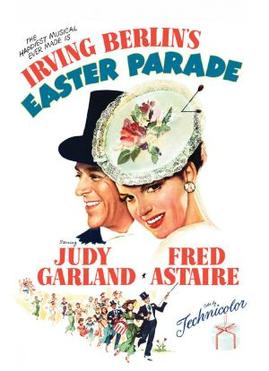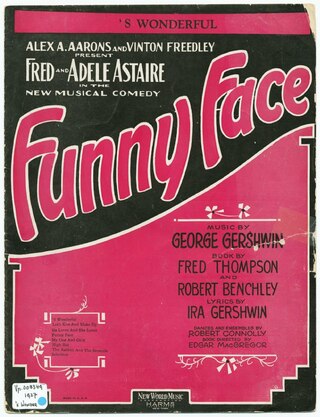Related Research Articles

MTV Unplugged is an American television series on MTV. It showcases recorded live performances of popular music artists playing acoustic or "unplugged" variations of songs. The show aired regularly from 1989 to 1999. From 2000 to 2009, it aired less frequently and was usually billed as MTV Unplugged No. 2.0. Since 2009, MTV Unplugged specials have aired occasionally, sometimes through online or subscription only. Episodes and specials have tended to showcase one artist or group, playing a combination of their hit songs and covers.

Anthony Dominick Benedetto, known professionally as Tony Bennett, was an American jazz and traditional pop singer. He received many accolades, including 20 Grammy Awards, a Lifetime Achievement Award, and two Primetime Emmy Awards. Bennett was named an NEA Jazz Master and a Kennedy Center Honoree and founded the Frank Sinatra School of the Arts in Astoria, Queens, New York. He sold more than 50 million records worldwide and earned a star on the Hollywood Walk of Fame.

Easter Parade is a 1948 American Technicolor musical film directed by Charles Walters, written by Sidney Sheldon, Frances Goodrich, and Albert Hackett from a story by Goodrich and Hackett, and starring Judy Garland, Fred Astaire, Peter Lawford, and Ann Miller. The film contains some of Astaire's and Garland's best-known songs, including "Easter Parade", "Steppin' Out with My Baby", and "We're a Couple of Swells", all by Irving Berlin.
"All of You" is a popular song written by Cole Porter and published in 1954.

"One for My Baby (and One More for the Road)" is a song written by Harold Arlen and Johnny Mercer for the movie musical The Sky's the Limit (1943) and first performed in the film by Fred Astaire.

The discography of American traditional pop and jazz singer Tony Bennett consists of 61 studio albums, 11 live albums, 33 compilation albums, three video albums, one extended play and 83 singles.
"Love for Sale" is a song by Cole Porter introduced by Kathryn Crawford in the musical The New Yorkers, which opened on Broadway on December 8, 1930 and closed in May 1931 after 168 performances. The song is written from the viewpoint of a prostitute advertising "love for sale".
"They Can't Take That Away from Me" is a 1937 popular song with music by George Gershwin and lyrics by Ira Gershwin. It was introduced by Fred Astaire in the 1937 film Shall We Dance and gained huge success.

"The Way You Look To-night" is a song from the film Swing Time that was performed by Fred Astaire and composed by Jerome Kern with lyrics written by Dorothy Fields. It won the Academy Award for Best Original Song in 1936. Fields remarked, "The first time Jerry played that melody for me I went out and started to cry. The release absolutely killed me. I couldn't stop, it was so beautiful."
"Dancing in the Dark" is a popular American song, with music by Arthur Schwartz and lyrics by Howard Dietz, that was introduced by John Barker with Tilly Losch dancing in the 1931 revue The Band Wagon. The song was first recorded by Bing Crosby on August 19, 1931 with Studio Orchestra directed by Victor Young, staying on the pop charts for six weeks, peaking at #3, and helping to make it a lasting standard.
"They Say It's Wonderful" is a popular song written by Irving Berlin for the musical Annie Get Your Gun (1946), where it was introduced by Ethel Merman and Ray Middleton. A film version in 1950 again featured the song when it was performed by Howard Keel and Betty Hutton.

"Fascinating Rhythm" is a popular song written by George Gershwin in 1924 with lyrics by Ira Gershwin.
"Who Can I Turn To?" (alternatively titled "Who Can I Turn To (When Nobody Needs Me)") is a song written by English composer-lyricists Leslie Bricusse and Anthony Newley and first published in 1964.

"'S Wonderful" is a 1927 popular song composed by George Gershwin, with lyrics written by Ira Gershwin. It was introduced in the Broadway musical Funny Face (1927) by Adele Astaire and Allen Kearns.
"Who Cares?" is a song composed by George Gershwin, with lyrics by Ira Gershwin, written for their 1931 musical Of Thee I Sing. It was introduced by William Gaxton and Lois Moran in the original Broadway production.
"Top Hat, White Tie and Tails" is a popular song written by Irving Berlin for the 1935 film Top Hat, where it was introduced by Fred Astaire.
"Isn't This a Lovely Day?" is a popular song written by Irving Berlin for the 1935 film Top Hat, where it was introduced by Fred Astaire in the scene where his and Ginger Rogers' characters are caught in a gazebo during a rainstorm. The lyric is an example of a song which turns a bad situation into a love song, a common style for Irving Berlin, as in I've Got My Love to Keep Me Warm and Let's Have Another Cup of Coffee.
"I Concentrate on You" is a song written by Cole Porter for the 1940 film Broadway Melody of 1940, where it was introduced by Douglas McPhail.
"I Guess I'll Have to Change My Plan" is a popular song published in 1929, with music by Arthur Schwartz and lyrics by Howard Dietz.
"I Love a Piano" is a popular song with words and music by Irving Berlin. It was copyrighted on December 9, 1920 and introduced in the Broadway musical revue Stop! Look! Listen! when it was performed by Harry Fox and the ensemble. The song was given a tremendous boost in the show as the set for it consisted of an enormous keyboard running completely across the stage. In front of this were six pianos with six pianists playing the tune. Irving Berlin always regarded the song as one of his best efforts.
References
- 1 2 Decker, Todd (2011). Music Makes Me: Fred Astaire and Jazz. University of California Press. p. 249. ISBN 9780520950061.
- ↑ Morath, Max (2002). The NPR Curious Listener's Guide to Popular Standards. Penguin. ISBN 9781101203118.
- ↑ Blum, David (August 22, 1994). "The Cooling of Tony Bennett". New York. p. 40.
- ↑ Ruhlmann, William. "Tony Bennett: MTV Unplugged". Allmusic. Retrieved November 24, 2014.
- ↑ "www.allmusic.com". allmusic.com. Retrieved April 23, 2024.
- ↑ "www.allmusic.com". allmusic.com. Retrieved April 24, 2024.
- ↑ "www.discogs.com". discogs.com. Retrieved April 24, 2024.
- ↑ "www.discogs.com". discogs.com. Retrieved April 23, 2024.
- ↑ "www.imdb.com". imdb.com. Retrieved April 24, 2024.